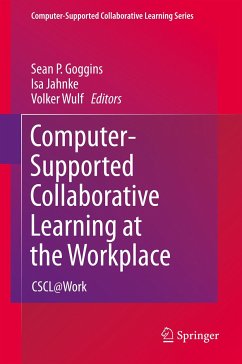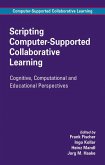Intended for researchers and practitioners, CSCL at Work first guides the reader through the theoretical and methodologic implications of the latest data. Once a foundation is in place, numerous detailed case studies prompt readers to rethink how workplace training is presently conducted, how more collaborative learning strategies can contribute to higher performance, faster transfer of technology from research and development and other significant workplace output measures.
Contrasting with traditional workplace learning, focused on task oriented, practice oriented, or regulatory compliance objectives, CSCL at Work recognizes that creativity and innovation emerges from collaborative learning. Researchers in the fields of CSCL and CSCW need this book to expand their understanding of the intersection of these two related but discrete fields, and to provide guidance in the application of the principles of CSCL in the workplace.
Dieser Download kann aus rechtlichen Gründen nur mit Rechnungsadresse in A, B, BG, CY, CZ, D, DK, EW, E, FIN, F, GR, HR, H, IRL, I, LT, L, LR, M, NL, PL, P, R, S, SLO, SK ausgeliefert werden.









